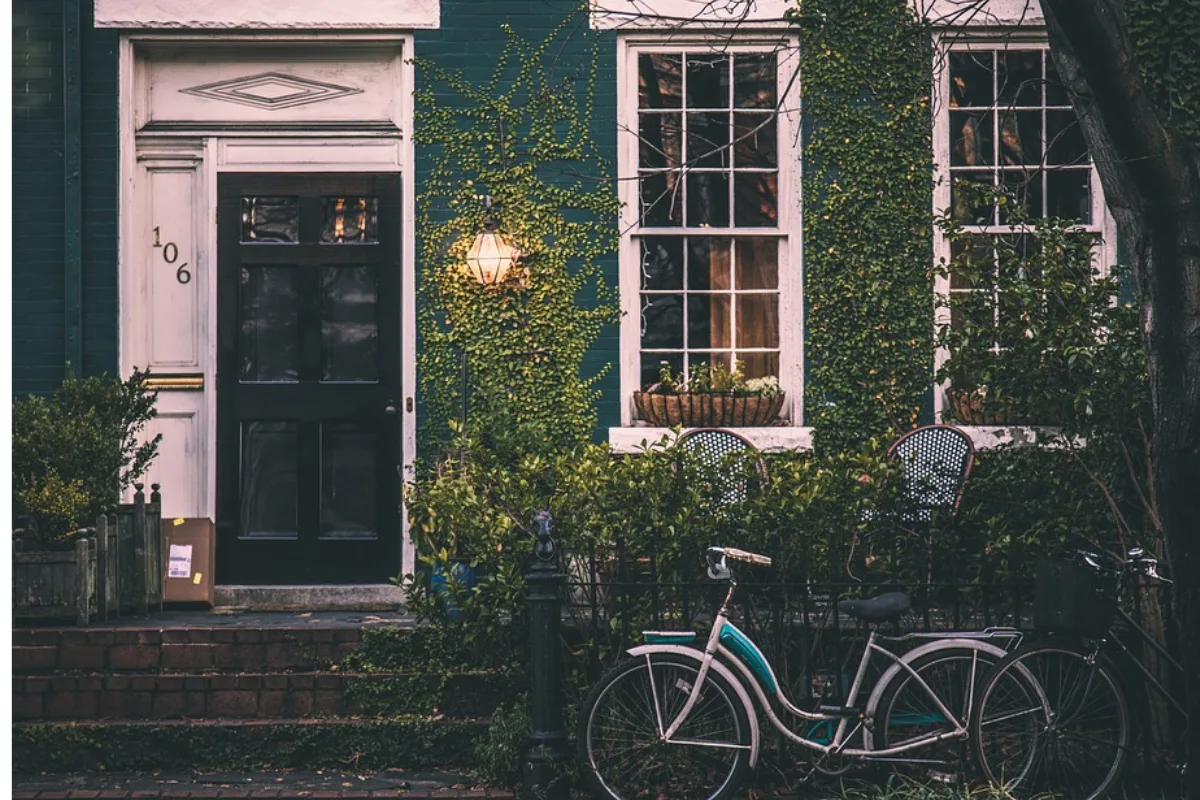
Including a house viewing checklist, first home essentials and help to buy houses schemes
Buying a house can be an exciting time for the whole family, especially if it’s your first home.
Make sure that you take into account all the financial expenditure into consideration. This involves understanding the registry costs, stamp duties, as well as accounting for removal services. Opting for the best House Removals Harrow can help you save time, costs, as well as efforts.
But before you start placing the furniture, start to think practically about how the house could work if it was your home.
Buying a house for the first time is a huge investment and rushing anything that costs this much money could be one of the biggest financial mistakes you ever make. Make sure you look around including online on website like eXp Realty.
While it’s true that many of us make big decisions like which house they like within the first 10 minutes of seeing a property, it’s always best to try and think of the pros and cons and how what it’s actually going to be like living there.
Buying a house checklist
For any first time buyers, this all may seem hard to navigate but once you have the basics sorted you can do the fun bit, searching for your dream home.
It can take from three months to a year to buy a home and there are several steps and hoops you need to jump through to make sure that you are getting the right house for the right price.
1. Brainstorm your dream house
Before you do anything have a think about what area you would like to live in, what kind of property and any essentials that you can’t live without like a drive or garden. Have a look at Triangle House Hunter for some great ideas on your dream home.
2. Next, think about your budget.
What can you afford to spend? Do you have a deposit saved? What about stamp duty? Ongoing costs plus any costs you have already like credit cards.
3. Finance/mortgage offer
Shop around for the best deals for your family. Once you’re happy get a mortgage in principle agreed.
4. Find your dream home
We have our top tips and our house viewing checklist below to make sure you look out for everything.
Contact a realtor or look at a property search website like this one for Florence SC Real Estate and make note of the houses you are interested in. Make sure to view and assess each one properly before finalizing your choice and advancing to the next step. Using house hunting websites such as Triangle House Hunter helps to give you a better idea of what kind of house is within your budget and within your location filter, which ultimately helps you to find your perfect property a lot faster. We have our top tips and our house viewing checklist below to make sure you look out for everything.
5. Make an offer
Once you’ve found the house of your dream then it’s time to make that offer.
6. Hire a solicitor
A good solicitor is worth their weight. They will sort the legal side out for you and deal with any issues that may come with buying and selling.
Find your local conveyancer fast online here.
7. Property survey
Have your own independent survey done so it’s checked for anything that may affect its value in later years.
8. Finalize your mortgage
This is when you would confirm your mortgage with your lender.
9. Exchange contracts
This means that by this point the sale is legally binding and you can not back out. You would all have to signed contracts to agree. This shows what you are buying including any items that may be left in the home.
This is when a deposit is also paid through your solicitor.
Remember to book your movers in! Have a look at https://www.atlantahomemovers.com/ which gives you an online quote so you know the cost straight away.
10. Pay and move in!
After all the hoops and contracts are signed you can finally move in! Your solicitor will have contacted your lender for the rest of the money and this is when your solicitor would be paid as well.
This is called completion.
This is how to budget in your new home

If you find budgeting hard then come join our Facebook group Money Saving Mums and get access to The Resource Vault with access to over 15+ money saving printables. Everything is included from budget planners to meal plans and pre-made shopping lists plus a link to our Money Saving Mums Facebook group!
The check list from this post can be printed from below but I will add it to the Resource Vault in the next few weeks.
But before you even step through that door of viewing a property, ask yourself these 5 vital questions and make sure you know the answers in detail.
1. What’s the local area like?
If you’re moving out of an area you know or even if you know averagely know it, it’s still good to take stock and look at the house’s location.
It could be your ideal home at the best price but if it’s out in the middle of nowhere and you don’t drive, how are you going to get the kids to school? Are local shops walkable? Public transport etc.
Drive around the house before you go for a viewing. Do the houses have home alarm systems, cameras, or security signs? This could indicate the area has experienced crime in the past. In addition, what’s the area like at different times of the day? What do the other houses look like? Are the gardens maintained? What’s parking like when everyone gets home?
Have a search about local schools and Google Map how far the walk is.
2. What are neighbors like?
There’s nothing much then moving into your dream home and you find yourself suddenly living next to the neighbors from hell!!
Knock on there door and be honest. You’ll get the lay of the land very quickly and get a feel for what they are like. Be honest and say that you are planning to look around the house next door and see what they say. They might even give you some information about the local community.
It’s not being nosy. It’s all about finding out as much information about the road and those that live there as you can before you buy.
3. How much have other properties gone for in the area?
This is when the internet is your friend.
Use a free tool called Homeseach. It compares properties against each other and gives you a real picture of what the house is worth. It pretty much gives you everything you need to know about the house and those around it.
Use all these details to negotiate when you find the property of your dreams.
It’s also worth asking the estate agents in the area how quick properties sell. Ask around to get a good picture.
4. How much will your bills be?
This won’t be perfect but you can get a rough idea about how much your bills will be. Search the local council website for the council tax band and use comparison sites for a rough idea of utility bills.
This way you can make sure that you still budget for your monthly costs and check what you have leftover to paint or decorate the house.
If you are thinking of buying a flat or a leasehold property then remember to find out how much the ground rent and any service charges are.
Think about appliances too and what will happen if they break down. Whilst home warranty cover is another bill, it will protect your appliances should something ever go wrong and can protect you from expensive repair bills in the future, so it’s well worth the money. It’s important to find a local home warranty cover provider – for instance, if you are buying a house in Newark, New Jersey, then you might want to have a look at the First American Home Warranty cover.
5. Dig around online
Search online to see if there are any plans to build near the house.
While it’s true that’s the job of your solicitor it’s still good to have a dig yourself to unearth anything that may become a surprise later. Plus, any research you do is free while a solicitor will charge you even if the sale falls through.
House viewing checklist
No matter if this is your first home or your third home, buying a new house makes everyone smile.
Making sure you have the funds in place for the home of your dreams is a must. So remember to go speak to a range of different mortgage lenders before you make your final choice.
Starting at your high street bank is a good idea as they already know you but don’t just take their offer. Like everything, make sure that you shop around and that you are getting the best interest rate for you and your family.
Once your funds are ready and you have that written in principle it’s time to go searching for that perfect home.
Finding houses online or via an estate agent is the easy part. Looking around all these houses with an objective head-on is harder. Making sure that all your needs are thought of before you buy is vital to being happy in your new home.
So here’s our house viewing checklist which is worth taking with you when you go to view a new property. Nowhere is going to be perfect but this list will help prompt you to look out for certain details and remind you of what questions to ask.
You can print this list at the bottom of this post.
Check if each room:
1. Has light switches? Do they work?
2. What’s the style like and walls look like? Are the damp? Have holes in?
3. What’s the flooring like? Any cracks? Patchwork?
4. Any condensation on the windows?
5. Any cracks that are too big to fill? Follow them. What’s caused the damage?
6. How many power sockets are here? Are they in the right places?
7. Is the room a good shape for storage?
8. Are there any hidden fireplaces? Are the capped?
9. Are you overlooked?
10. Do the windows open and shut easily?
11. Do they have all the keys?
12. What are the frames like?
Plumbing:
1. Are all the taps working?
2. Is the hot water working?
3. Check water pressure. Is it strong enough?
Bathroom:
1. Is there a bath? Do you need one?
2. What’s the shower pressure like?
3. Saver socket?
4. Storage?
5. What’s the chain/flush like on the toilet?
6. Check the flooring.
7. Is there a fan in the room or does the window open enough for ventilation?
Outside:
Garden:
1. Is it safe for the whole family?
2. Is it overlooked?
3. Where does the sunset?
4. Is there any shade?
5. Is it big enough/small enough for you to handle?
Brickwork:
1. How old is the house?
2. Does the brink work look ok?
3. Any cracks?
Roof:
1. Tiles or slates?
2. Any missing?
3. Is the chimney ok?
4. Check gutters and drains.
Parking:
1. Is there a garage? Off-road parking?
2. What’s it like at weekends or evenings?
3. Where can guests park?
4. do you need a permit?
Extras:
1. Working fire alarms?
2. Check broadband signal?
3. TV signal.
4. Mobile phone coverage on your network.
5. Where’s the boiler? How old is it?
6. could you extend the house if you wanted/needed too?
7. Is there a loft? How easy is it to get up there?
While this list may seem huge, this will help you get to the bottom of if this is your dream home for your family. Take it to each viewing then compare notes.
Join our free six-week money saving course

If you’re struggling to save money then why not join our FREE money saving course that takes you step by step through saving money as a family. All simple steps to help you build an emergency fund or save towards that mega holiday.
Join our FREE Money Saving Course here and I can’t wait to see how I can help you!
This is the perfect time to improve your finances.
With this free email course, we cover everything from setting financial goals to ways to earn some extra money in your free time. Over the next 6-weeks, you will receive an email that will help you save your family more money.
We do not spam! If you sign up for our course then we will send you our monthly newsletter but that is it and you can unsubscribe at any time by going to the bottom of the newsletter and clicking unsubscribe.
When you’re viewing a house try and remember these five top tips:
1. Take your time
There’s no rush. You want to get a really good feel of the property and you can only do that by spending at least 20 minutes or so looking around.
Don’t feel embarrassed to sit in the garden or one of the bedrooms. Making sure you get the real feel of the property is key.
2. Use your sense
Don’t ignore your sixth sense. Remember that a seller doesn’t have to tell you if something is wrong with the house or if next door are noisy.
Sit in the house and be quiet. What can you hear? What can you smell?
Is there a whiff of air freshener? Does one room feel colder than the rest?
These may not be warning signs but they may be and they are worth asking directly.
Related Posts:
- How to Get Out of Your Overdraft
- 93 Ways to Save Energy at Home
- 53 of the Best Frugal Living Tips: This is How to Become a Frugal Family
3. View the property at least twice
This could be the biggest financial outlay your family ever make. Let’s make it count!
Making sure you visit the house at different times of the day gives you a feel of what it may be like to live there. Walk around again and again.
What was the traffic like getting there? Has the noise increased? Did parking get worse? Is the light different? Visiting at 10 am will be a lot different to 7 pm.
Make note of the changes to remember what it was like.
4. Have a survey done
It may cost a bit more but in the long run, you may be thankful that you did!
Many mortgage lenders will carry out their own survey but it won’t dig into the nitty-gritty details of a house including what the condition of the house really is.
Our biggest tip here is to say please invest in your own independent survey. This will bring up any hidden issues that you may not have found and gives you the full picture on the house you are about to buy.
It could be worth its weight in gold!
5. Is the land included?
This sounds like a no-brainer but it’s worth checking. Ask the estate agent, seller then the solicitor before you go any further. You then need to decide if this is a deal-breaker for you or not.
Not owning the land or finding out later that you don’t could end up costing you a lot of money!
Help to buy houses
If you’re struggling to get on the housing market then have a look into help to buy schemes like Homefinder.
Help to buy schemes help to give you that little lift up the property ladder to help you own your own home. Please keep in mind everything from above and remember to check all terms and conditions and any extras you may have to pay for.
Laura x
If you enjoyed this post and would like some more family friendly money managing ideas, then head over to the managing money section here on Savings 4 Savvy Mums where you’ll find over 30 blog posts dedicated to helping you manage your family’s finance. There’s enough tips to help you save over £300 a month! You could also pop over and follow my managing money Pinterest boards for lots more ideas on how to keep more of your money in your pocket: Managing Money Printables, Managing Money for Families and Family Finance.
Love this post? Then why not save it to Pinterest so you can easily find it later.

What the * means
If a link has an * by it, then this means it is an affiliate link and helps S4SM stay free for all. If you use the link, it may mean that we receive a very small payment. It will not cost you anymore that it would normally.
You shouldn’t notice any difference and the link will never negatively impact the product. The items we write about are NEVER dictated by these links. We aim to look at all products on the market. If it isn’t possible to get an affiliate link, then the link, or product is still included in the same way, just with a non-paying link.
Questions to Ask When Buying a House
Here's our house viewing checklist which is worth taking with you when you go to view a new property.
Nowhere is going to be perfect but this list will help prompt you to look out for certain details and remind you of what questions to ask.
Check if each room:
1.
Has light switches? Do they work?
2.
What's the style like and walls look like? Are the damp? Have holes in?
3.
What's the flooring like? Any cracks? Patchwork?
4.
Any condensation on the windows?
5.
Any cracks that are too big to fill? Follow them. What's caused the damage?
6.
How many power sockets are here? Are they in the right places?
7.
Is the room a good shape for storage?
8.
Are there any hidden fireplaces? Are the capped?
9.
Are you overlooked?
10.
Do the windows open and shut easily?
11.
Do they have all the keys?
12.
What are the frames like?
Plumbing:
1.
Are all the taps working?
2.
Is the hot water working?
3.
Check water pressure. Is it strong enough?
Bathroom:
1.
Is there a bath? Do you need one?
2.
What's the shower pressure like?
3.
Saver socket?
4.
Storage?
5.
What's the chain/flush like on the toilet?
6.
Check the flooring.
7.
Is there a fan in the room or does the window open enough for ventilation?
Garden:
1.
Is it safe for the whole family?
2.
Is it overlooked?
3.
Where does the sunset?
4.
Is there any shade?
5.
Is it big enough/small enough for you to handle?
Brickwork:
1.
How old is the house?
2.
Does the brink work look ok?
3.
Any cracks?
Roof:
1.
Tiles or slates?
2.
Any missing?
3.
Is the chimney ok?
4.
Check gutters and drains.
Parking:
1.
Is there a garage? Off-road parking?
2.
What's it like at weekends or evenings?
3.
Where can guests park?
4.
Do you need a permit?
Extras
1.
Working fire alarms?
2.
Check broadband signal?
3.
TV signal.
4.
Mobile phone coverage on your network.
5.
Where's the boiler? How old is it?
6.
could you extend the house if you wanted/needed to?
7.
Is there a loft? How easy is it to get up there?

